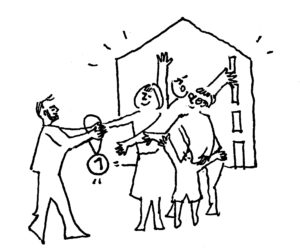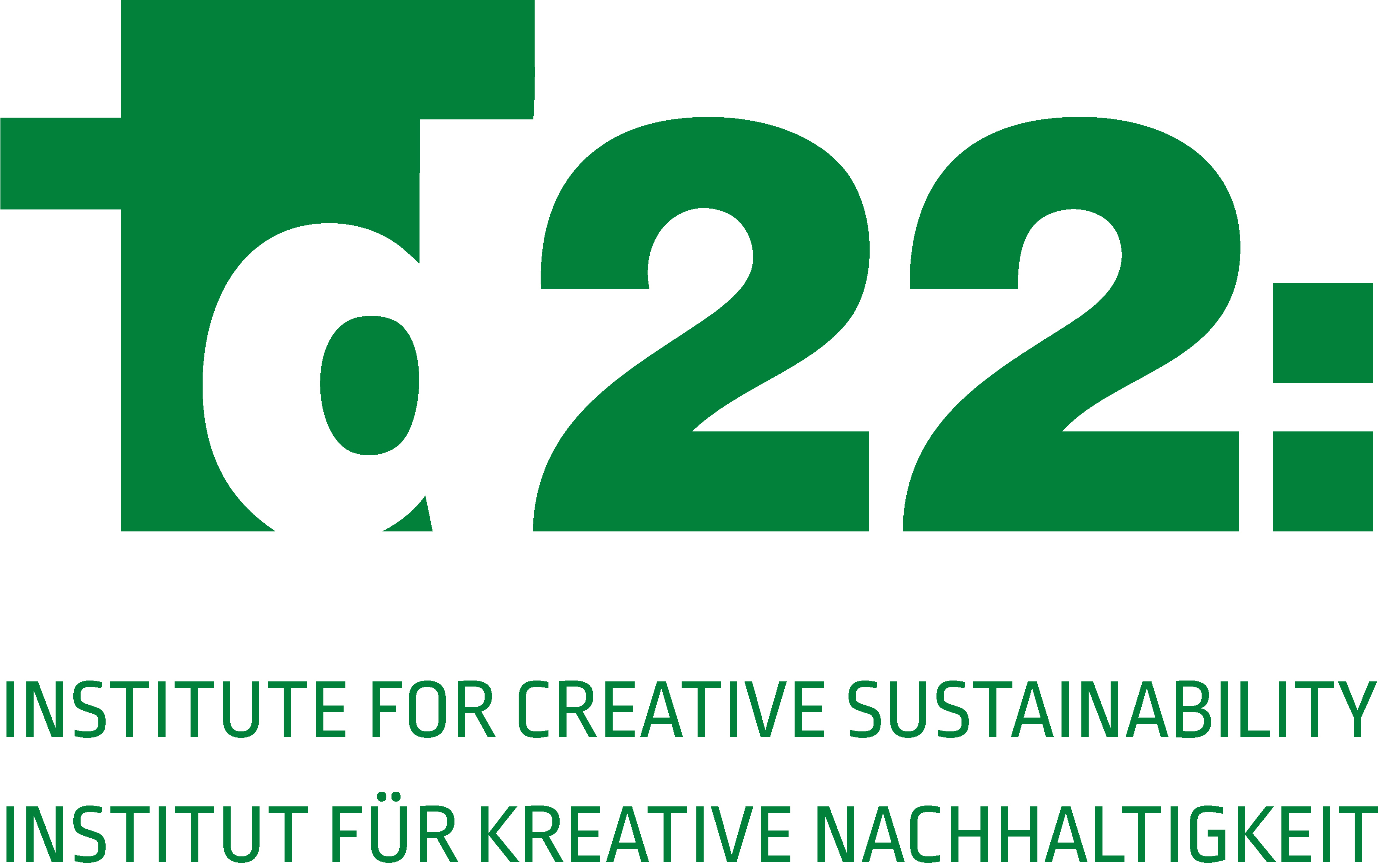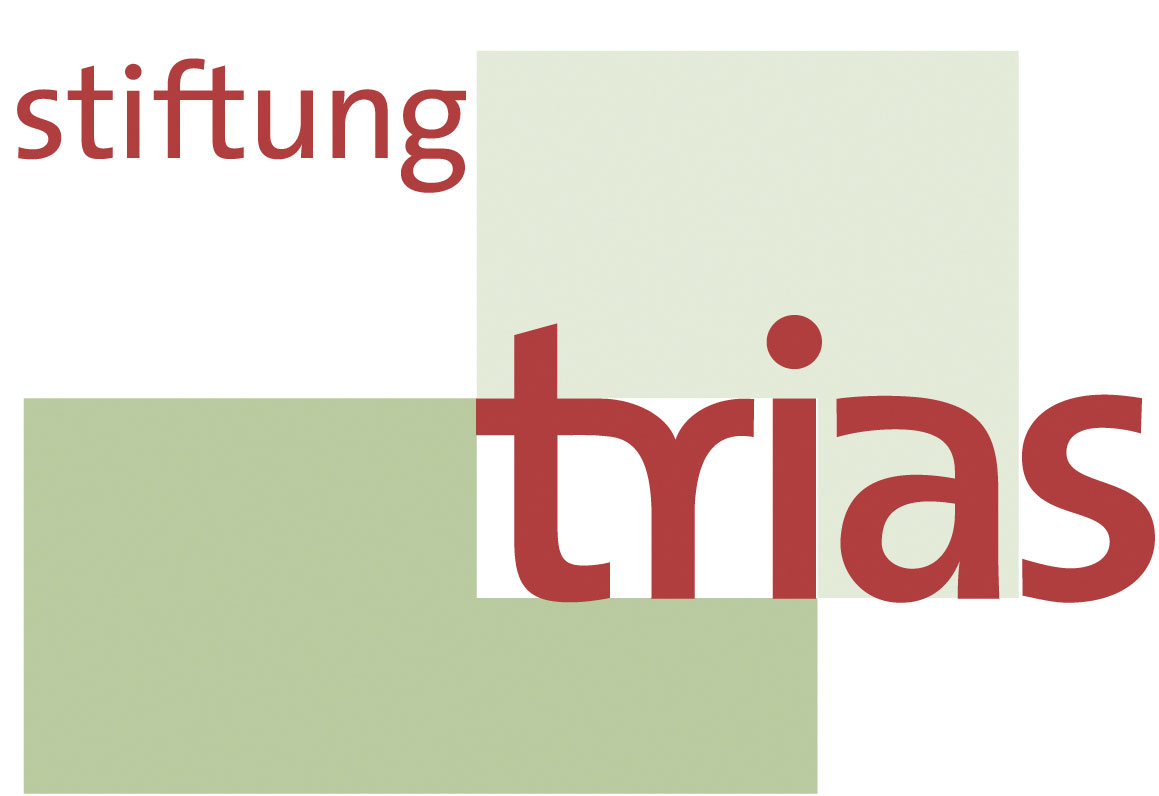Project Award
October 6 / @CRCLR (Circular Economy House), VOLLGUT Berlin / free entrance
NOTE: Spaces for the Discussions are limited, so please come at 5.00 pm to register on site!
7.30 pm
European Collaborative Housing Award Ceremony
with urbaMonde, Building and Social Housing Foundation.
8.00 pm
Presentations & Discussions:
Four awarded European Collaborative Housing Projects

The European Collaborative Housing Award is a public recognition of innovative and inclusive housing projects, able to inspire their peers and to influence housing policies, both locally and internationally. The Award provides a platform for experience sharing, seeks to increase the visibility and strengthen the Collaborative Housing movement across Europe. Winning projects integrate the shortlist of the 2018 World Habitat Awards, an annual award organized by Building and Social Housing Foundation and UN-Habitat.
Collaborative Housing projects (co-housing, housing cooperatives, community land trusts, participatory and self-organized housing initiatives, intentional communities etc.) were invited to document and submit their initiatives to the collaborative online platform psh.urbamonde.org. An international panel of housing experts and professionals selected four inspiring initiatives invited to participate in the 2017 edition of the EXPERIMENTDAYS.
Selection Committee 2017:
Anja Planiscek (University of Ljubljana / Trajekt), Christiane Droste (UrbanPlus), Darinka Czischke (TU Delft), Guido Schwarzendahl (Co-operative Housing International, Bauverein Halle & Leuna), Liat Rogel (HousingLab), Mariangela Veronesi (Building and Social Housing Foundation), Marina Yoveva (Habitat for Humanity), Melissa Fernandez (University of Lancaster), Michael LaFond (Id22:institute for creative sustainability), Rolf Novy-Huy (Stiftung trias).
AWARDED PROJECTS
Cenni di Cambiamento (Milano, Italy):is the most important social and collaborative housing project ever built in Italy within the SIF – the Italian funding platform for social housing. Completed in 2013, it hosts 122 social and affordable homes, rented out to people – mainly young people – with different levels of incomes. There are residential services for people with special needs, common spaces, services and public spaces for the neighborhood and shops. Cenni is a manifesto standing for a new type of social housing in Italy thanks to its innovative funding structure, multi-stakeholder approach, architectural design and a design and management process that involves and empowers the tenants and the wider community at all stages.
New Ground Cohousing Community (London, UK) is made up of a group of twenty-six women between 50 and 88 years old of a variety of backgrounds and cultures, almost all of whom lived alone prior to the project. What brings them together is the determination to stay as self-dependent and active as they can while they are growing older. More than 15 years of struggle for planning and inclusive, affordable and adequate housing solution for the elderly resulted in an intentional community and a model for CoHousing responding to the needs of ageing societies.
The Village Vertical (Villeurbanne/Lyon, France) project was launched in 2005. In 2013, 14 households of diverse background, age and income levels moved into their new homes. 13 households have incomes that are below the ceiling for social housing. Village Vertical is the first cooperative housing project based on collective ownership in France. It sets an example for innovative housing solutions that are inclusive, environmentally friendly, permanently affordable, non-speculative and through which citizens are enabled to plan, build and manage their homes, while sharing spaces and resources with the wider neighbourhood.
Wohnprojekt Wien (Vienna, Austria): is the name of an association of private people founded in 2009. The group shared a vision of a new way of living together based on sustainability, collaboration, solidarity and open-mindedness. The result of this vision is a collaborative housing project for 67 adults and 34 children, finished in 2013 and located in the 2nd district of Vienna. It houses 40 apartments from 36 to 150m², 400m² commercial and 700m² of community spaces. Beyond the open and sustainable architectural design, the project integrates other ideas of sharing and social sustainability.
In 2017, the selection committee decided to award a special mention to the St. Ann’s Redevelopment Trust (stART) in London in order to manifest its support to a community-led initiative that seeks to prevent the St. Ann’s Hospital area from being sold to private housing developers and to secure community-ownership and affordability on the long term. Two-thirds of the St Ann’s Hospital site in Haringey, North London, is due to be sold for a private housing development. StART is a group of Haringey residents and workers who want to see the St. Ann’s Hospital site used permanently for the good of all our local communities. They have initiated a community-led and transparent process for a housing development, which puts local people in control while providing genuinely affordable homes, promoting health and wellbeing, and creating a green neighbourhood.
The second European Collaborative Housing Award is co-organized by urbaMonde (France/Switzerland) and Id22 (Germany) with the support of the “On y va – Auf geht’s – Let’s go” program and the French Ministry for Territorial Cohesion.



